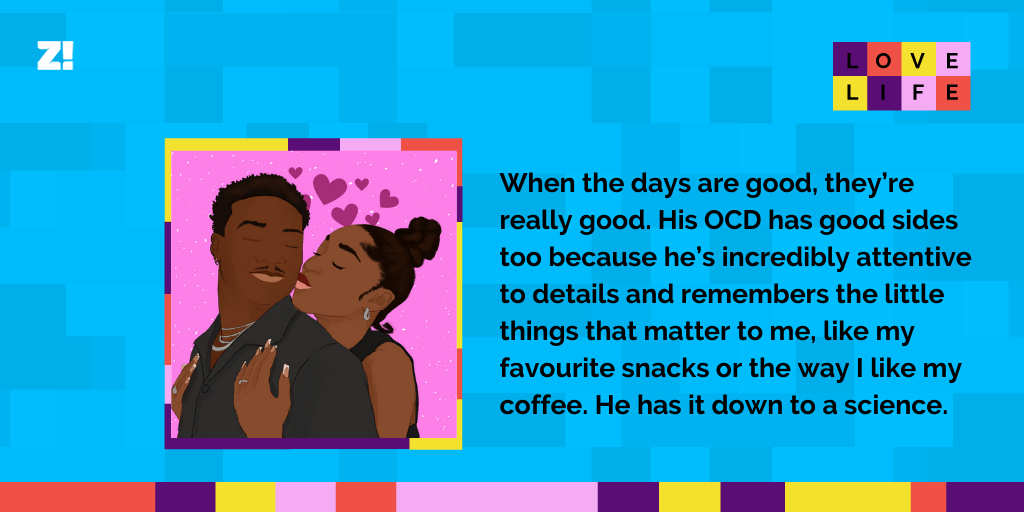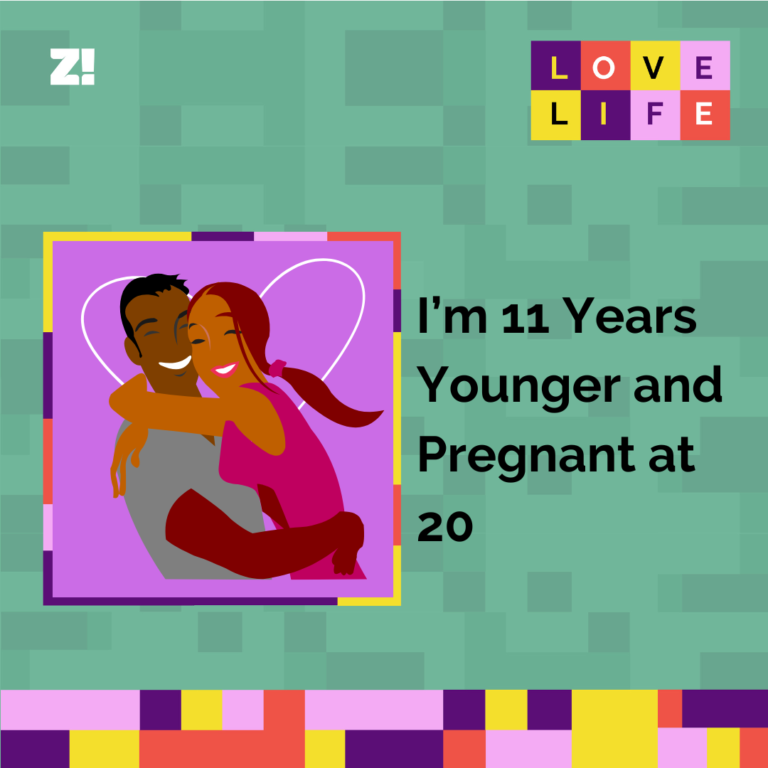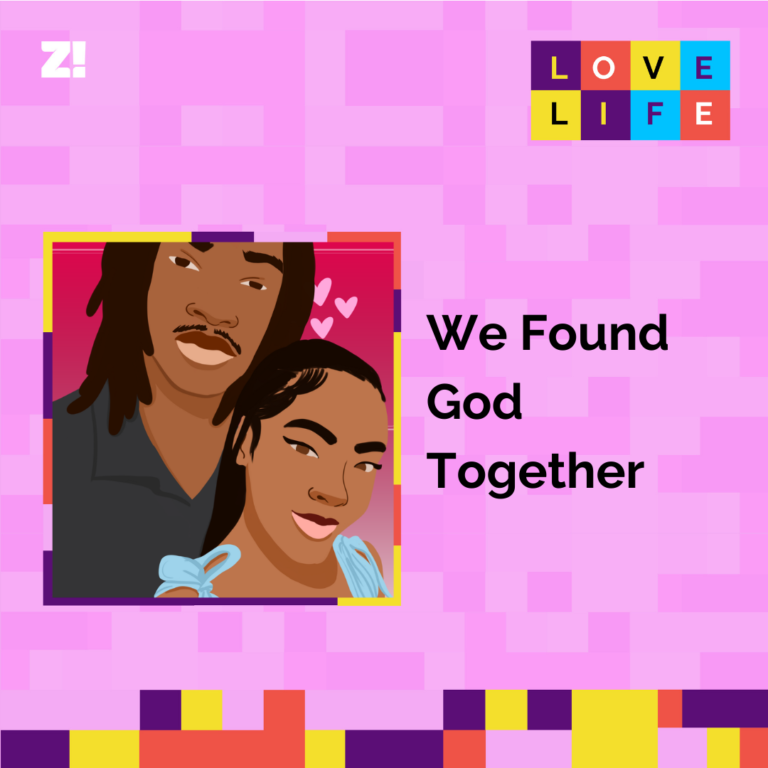Love Life is a Zikoko weekly series about love, relationships, situationships, entanglements and everything in between.

What’s your earliest memory of each other?
Karena: We met in 2017 at a Nigerian cultural event in Toronto. We’d both lived in Canada for about a year by then. I was there with friends, feeling a bit homesick and looking to connect with fellow Nigerians.
Tsola caught my eye because he seemed a bit out of place, fidgeting and avoiding eye contact. But there was something interesting about him.
Tsola: Yeah, that event was a tough one for me. Crowds and new social situations tend to trigger my OCD.
When Karena approached me, I was initially apprehensive. But she had this warm, reassuring presence that made me feel at ease. We started talking about Nigeria, our favourite foods, and how we both missed home.
Tsola, did you tell her about your OCD right away?
Tsola: No.
Opening up to her was one of the hardest things I’ve ever done. It was about three months into our relationship before that happened. We were spending some time together at my apartment, and I was anxious that evening.
Karena: I thought we’d gotten comfortable with each other. We really bonded over shared Nigerian experiences because, coincidentally, we both lived in Port Harcourt. That was an immediate green flag for me. We’d talk Trans Amadi gist for hours like we knew each other in Nigeria. He came across as very self-assured. I already liked him a lot.
So I was concerned that he was suddenly behaving shifty. It was the first time I’d visited his place too; I was a little paranoid.
How did it come out?
Tsola: I saw how uncomfortable my discomfort was making her, and I hated it. So as we ate dinner, I randomly brought up how I have these intrusive thoughts that make me feel like something terrible will happen unless I perform certain rituals. The whole time, I was terrified she’d think I was crazy and leave.
Karena: I could see how scared he was to tell me. It broke my heart to see him so vulnerable. When he finished explaining, I took his hand and told him I loved him and his OCD didn’t change that. I didn’t know what I was saying.
We spent the rest of the night talking about his experiences. I didn’t fully understand what he was going through, but I was determined to learn and support him.
Was the relationship already official?
Karena: At least a month before then, it felt official already. But even if it wasn’t, that was the day we agreed to be exclusive.
Tsola: Maybe before that was still the talking stage, but I think we knew we liked each other and wanted to date from early on.
What was the relationship like after this big reveal?
Karena: One of the biggest challenges has been understanding that OCD isn’t something that can be easily fixed or ignored. There have been times when I’ve felt frustrated and helpless, especially when his compulsions interfere with our daily life, which they do a lot.
For instance, we’ve had to leave social gatherings early because Tsola felt overwhelmed. I’m an ambivert, so it hasn’t been all bad. But sometimes, I feel like I’m walking on eggshells to avoid triggering his anxiety.
Tsola: When I notice her overcompensating for my triggers without being able to do anything about it is when I feel the worst, TBH.
I’ve been in therapy for years, and I’ve tried various medications with varying degrees of success. Some days are better than others, but there are times when it feels like I’m drowning in my compulsions. Those are the days when I struggle the most, and it takes a toll on our relationship.
If you want to share your own Love Life story, fill out this form.
Tell me about it
Karena: There was a particularly difficult period last year. He was constantly worried about contamination and would wash his hands until they were red and raw. It affected our intimacy, our routine, everything. I felt like I was losing him.
We had some heated arguments because I didn’t know how to help him, and he felt guilty for putting me through it.
How have you guys been able to come this far together?
Tsola: She’s been my rock, but there have been times when I’ve pushed her away because I felt like a burden.
I remember one time when I couldn’t touch anything in my apartment without feeling contaminated. She tried to comfort me, but I snapped at her. I felt horrible afterward, but at that moment, the anxiety was too overwhelming.
Karena: We’ve had many conversations about how to handle his OCD. We’ve learnt to set boundaries. For example, we have designated areas in both his and my apartment where I can go to calm down when I feel overwhelmed.
It’s not perfect, but it helps.
Were there times when you considered breaking up?
Karena: Before I met Tsola, my relationships were more straightforward, but also less deep and less meaningful. Maybe it’s the trap we women fall for where we see saving a flawed man as a challenge. That’s what my sister keeps telling me anyway.
I don’t know, but this relationship feels more high stakes because I feel the most emotional attached I’ve ever felt before.
Tsola: I hid my OCD from most of my exes as best as I could because I was afraid they wouldn’t understand or would leave me. This secrecy created a lot of stress and prevented genuine intimacy. With Kar, I felt safe enough to be open about my struggles, which has been both challenging and incredibly freeing.
Also, my past partners tried to be understanding, but they didn’t fully grasp the extent of things. Kar has gone out of her way to educate herself about OCD and to support me in ways I never experienced before.
I’ve tried to talk her out of me, but I myself can’t imagine breaking up with her.
Talk her out of you?
Tsola: I always have this phase when I feel like a burden to everyone and just want to figure out my struggles on my own. Sometimes, I’d tell her that maybe she’s better off without me.
Karena: The first time we had that conversation was one of the hardest we’ve ever had. I was heartbroken that he felt that way, but I also understood where he was coming from. It was a wake-up call. We stayed apart for a week and some days.
But then, we met up again and realised we needed to find better ways to support each other and take care of ourselves.
Did you find better ways?
Tsola: We decided to go to therapy together, and it made a huge difference. There are still tough days, but it’s helped us live through moments without feeling like we‘re losing ourselves to each other.
Karena: There was another tough period about three years into our relationship when Tsola’s compulsions were at their worst. I was lonely because OCD can be an invisible wall between us, making it hard to connect on a normal, everyday level.
Once, I tried to hug him to offer some comfort, but he flinched and stepped back, fearing that physical contact would spread contamination. That rejection, even though I knew it wasn’t personal, stung deeply. I thought about whether I could handle this for the rest of my life. I started questioning whether I was sacrificing too much of my own happiness and well-being, so I asked my close friends.
Did they know about his OCD? What did they say?
Karena: Just two of my friends that Tsola was comfortable with knowing about it. They actually suggested the couples therapy we’re currently taking. But not all my friends who know bits and pieces of the situation are so understanding. A few have expressed concern about the toll the relationship is taking on me.
Tsola: When Karena tells me about the conversations she’s had with her friends, I have mixed feelings. On one hand, I hate the fact that I’m being talked about. I can’t help the sting of insecurity and guilt sometimes. It makes me confront my fears that I’m dragging her down and maybe she deserves someone who doesn’t come with so much baggage.
Right
Tsola: When one friend asked if she could see herself living like this for the rest of her life, it hit me like a punch to the gut. I didn’t want to be the reason she felt unhappy or overwhelmed.
But I’m also happy she has a tight support system. I have one too with three of my friends, and I know how sane and grounded it makes me feel after what I’ve gone through with my parents and sisters in the past.
Karena: But it’s not just about dealing with the bad days; when the days are good, they’re really good. He’s one of the most thoughtful and caring people I know. His OCD has good sides too because he’s incredibly attentive to details and remembers the little things that matter to me, like my favourite snacks or the way I like my coffee. He has it down to a science.
That sounds nice
Karena: Yes. His ability to be present and attentive has brought a lot of joy and comfort to my life.
Tsola: She’s funny, and she knows how to make me laugh even on my worst days — which is hard. It’s also been great having someone I know I can trust with important decisions when my brain cripples me with overthinking.
What’s next for your relationship?
Karena: We’ve definitely talked about moving in together, getting married and even having kids. It’s something we both want, but we’re also very aware of the challenges.
Tsola: We actually plan to move in together next year. It’s a big step, and we know it would bring a new set of challenges.
We’ve discussed setting up routines and boundaries to help manage this. Specific areas designated for certain activities, like a clean area where I can feel safe, and working together to keep those spaces organised.
Neat
Karena: We’ll have a professional cleaner come in regularly to help maintain the place without it all falling on either of us. This could reduce the stress and potential conflict around household chores.
Tsola: Having kids is something we both dream about, but it’s also the area where my OCD might present the biggest challenge. We had a pregnancy scare in 2021 when we forced ourselves to discuss it extensively.
Karena: It’ll probably be individual and couples therapy for the rest of our lives, but I think that’s a great thing for us, OCD or no. We need to keep working on our communication skills and coping mechanisms. As we move forward, we’ll make sure we’re as prepared as possible for the ups and downs.
What did that extensive conversation about kids entail?
Karena: Educating ourselves on parenting with OCD, seeking advice from professionals, and possibly joining support groups. We want to be proactive in finding ways to ensure that our children grow up in a loving and stable environment.
It’s scary, but I think we’ll be fine.
Tsola: The most important thing to me is that we’re both happy and healthy, as husband and wife, as parents, whatever. I’m willing to put in the work.
Karena: We’re also realistic about the fact that we might need to adjust our plans based on how things progress. I’m keeping an open mind.
On a scale of 1 to 10, how would you rate your Love Life?
Karena: 8. Overall, I feel incredibly loved and supported, and I know we both put in the work to keep our connection.
Tsola: Yeah, 8. I feel incredibly loved and supported. I feel very lucky to have her.
Check back every Thursday by 9 AM for new Love Life stories here. The stories will also be a part of the Ships newsletter, so sign up here.
ANOTHER LOVE STORY ABOUT MENTAL HEALTH: Love Life: We Broke Up 5 Times Because of His Depression




